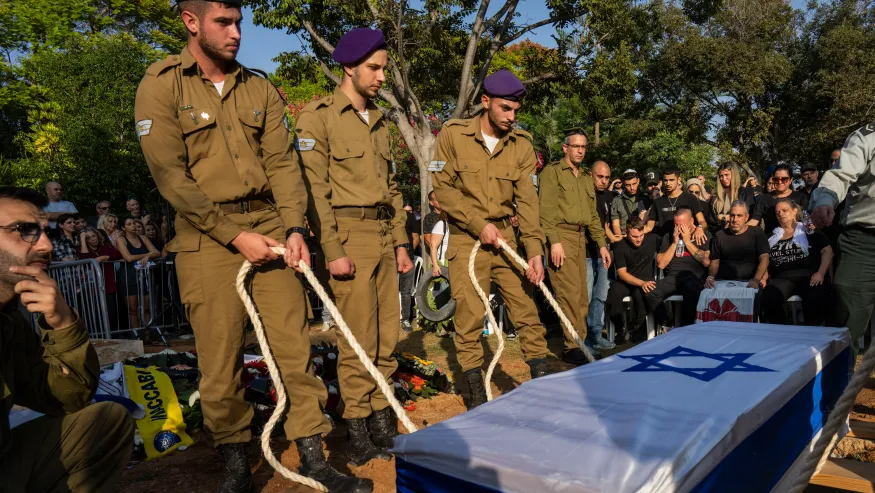Alwaght- With the end of the week-long truce in Gaza on Friday, Israeli warplanes resumed their heavy carpet bombardment of the besieged enclave under the excuse of Hamas’s violation of the ceasefire, killing and injuring larger number of civilians. In the middle of such situation, the cabinet of Prime Minister Benjamin Netanyahu is dreaming of a buffer zone in Gaza and assassination of Hamas and Islamic Jihad leaders to pose as a winner and stay in power longer despite a failure to defeat and obliterate Hamas or at least release its prisoners. The new escalation for its part has dimmed the prospects of talks for a prisoner deal, though international mediation, led by Egypt and Qatar, is still working towards a new agreement.
Alwaght talked to West Asia affairs expert Sabah Zangeneh, asking him about aspects of the rejuvenated war.
Alwaght: With end of ceasefire, Israeli regime resumed it attacks on people and infrastructures. Do you think there is a change this time in the form of the Israeli attacks or they go as they started?
Zangeneh: The Israeli regime will continue war like before and try to inflict larger damages on Gaza infrastructure and kill more people with airstrikes and ground offensive. These attacks are meant to put pressure on Hamas and its allies to realize the goals Tel Aviv has in mind.
Alwaght: Hamas said it made truce extension proposals but was rejected by the Israelis. What do you think about chances of a new prisoner swap deal?
Zangeneh: The Israeli regime is trying to wrest concessions from the resistance groups through unceasing military operation. Israel’s primary goal is to free a large number of its prisoners. The second goal is to assassinate a number of resistance leaders and weaken these groups. It is pursuing these two goals while advancing the negotiations.
Alwaght: Concerning the assassination plans, the Wall Street Journal has recently reported Netanyahu is putting on the table this option. Can the Israelis strike the resistance commanders? What are the consequences should Tel Aviv implement this scenario?
Zangeneh: The assassination is dependent on the conditions of the region and the resistance commanders. It depends on how well they can hide from enemy eyes and stay away from being tracked and targeted. So, they should very well detect the spying elements and be on the move to avoid exposure to the enemy. The resistance groups, indeed, should include a condition in the negotiations with Tel Aviv and it is the guarantee of safety of their leaders. Otherwise, the prisoner release talks will be wreaked.
Alwaght: Along with renewed bombardment, Israeli officials unveiled Gaza ‘buffer zone’ plan dividing the north from the south. What do you think is the goal behind this plan and how feasible is it?
Zangeneh: The Israeli regime seeks to implement this project in order to completely occupy the north of Gaza or block the possibility of operations by the resistance groups in this area. Therefore, it will seriously follow the implementation of this plan, but it is impossible to stay in Gaza for a long time, and the occupiers will suffer more human and financial losses.
Alwaght: What would be the reaction of the international community if buffer zone is executed?
Zangeneh: The American and European reactions are part of their stated policy but they do not set up roadblocks ahead of the Israeli policies. Still, mere talks and putting demonstrative pressures on Tel Aviv will not work and will not force Israel away from its crimes against the Palestinians.
Alwaght: What is your prediction of war? Will the resistance forces have new surprises to the Israelis in the forthcoming days?
Zangeneh: I think that conflict will spill over to the West Bank and attacks on the Israeli settlers will increase. In Gaza, the resistance groups are resolved to continue the battle and can identify and take out Israel’s operatives in Gaza and the surrounding regions. They can also destabilize the settlements around Gaza to scare the settlers away and liberate the occupied territories.



























